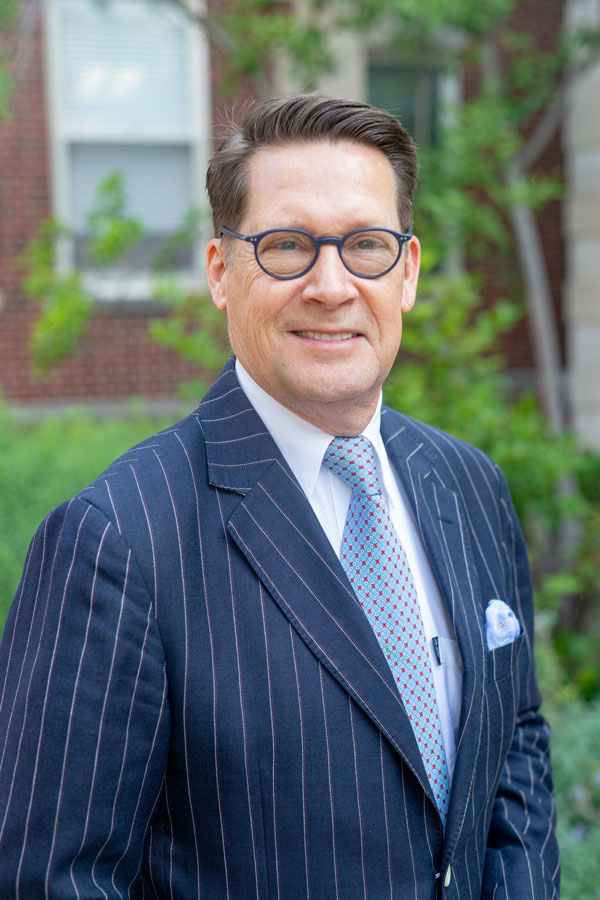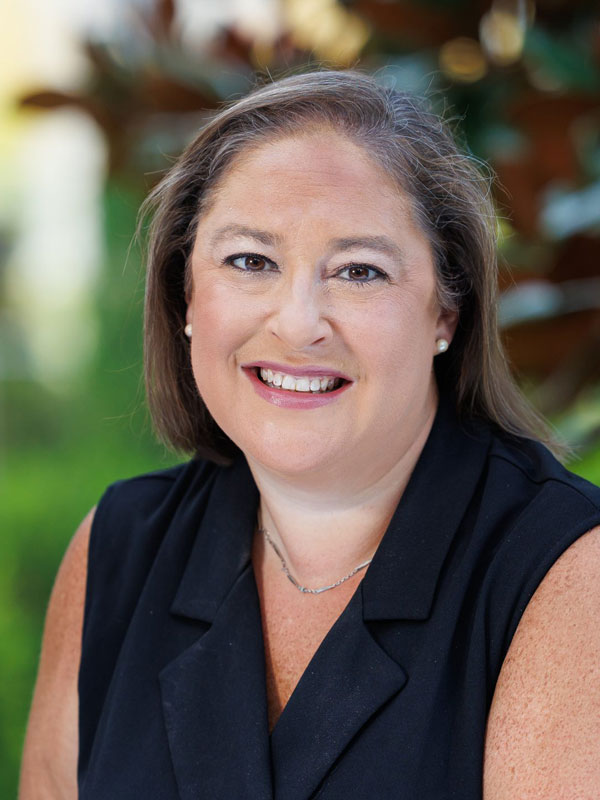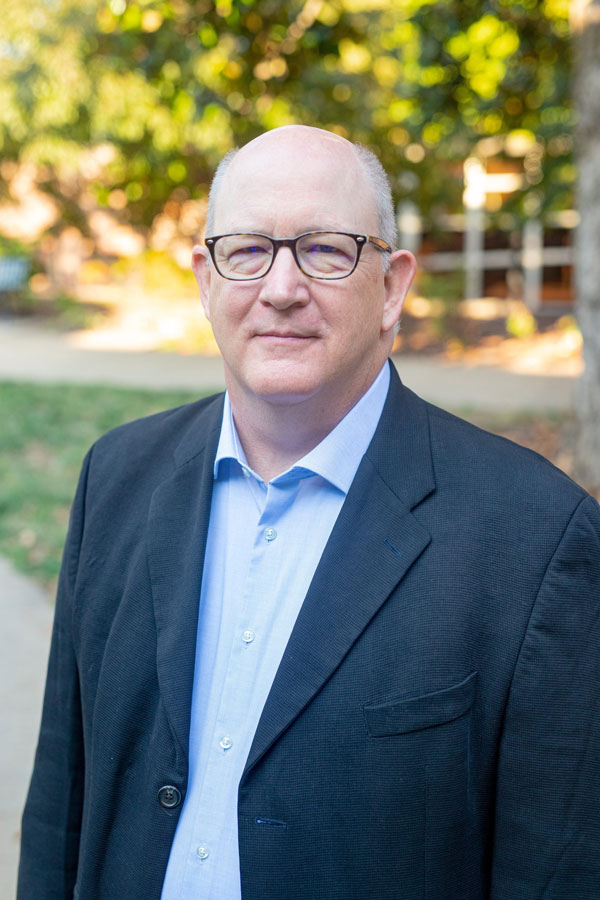Get started with Mizzou
Apply hereMaster of Arts
Learn to amplify new developments and influence campaigns with an online Master of Arts in Journalism with an emphasis in Health Communication from Mizzou.
We frequently view health care as solely a technical, scientifically oriented field. Yet, communication professionals are increasingly needed to translate complex research and data into news articles, public health campaigns, press materials, corporate and community wellness efforts and patient care information. Your storytelling across print, advertising, broadcasting, social media and the web helps catalyze varying degrees of awareness. Individuals then take action for their own or another’s health and stay abreast of the latest advancements in technology and disease prevention.
Getting you here, the online master’s in journalism with an emphasis in health communication lets you move up in your current field or pivot to a position in a growing industry. The blended online format brings the Missouri School of Journalism’s esteemed program to a wider swath of professionals looking toward leadership and interested in expanding their skillset. You’ll build your knowledge through required courses covering journalistic law and ethics and explore where traditional and digital communication techniques intersect with the health care field. Courses are offered in 8- or 16-week sessions.
Quick facts
Official name
Master of Arts in Journalism with an emphasis in Health CommunicationCampus
Program type
Master's degreeAcademic home
Missouri School of JournalismDelivery mode
Blended, one campus visit requiredAccreditation
Higher Learning CommissionCredit hours
33Estimated cost
$36,382.50*This cost is for illustrative purposes only. Your hours and costs will differ, depending on your transfer hours, your course choices and your academic progress. See more about tuition and financial aid.
Why earn an online master’s in health communication?
Public awareness remains integral to several sects of the health care industry: the patient-provider relationship, how hospitals and public health organizations interact with their surrounding communities, campaigns calling attention to illnesses and disease prevention and journalists reporting for a medical, health or wellness publication. Regardless of medium, health communication professionals have a twofold job — to abide by journalistic and media standards and to adapt scientific information for audiences spanning from industry professionals to researchers and academics to the general public.
Observing the emergence of various sectors composing the journalism and communications field, the Missouri School of Journalism developed a blended online master’s program to help working industry professionals delve into an area via an emphasis and strengthen their leadership and strategic competencies for the present landscape.
For the online master of arts in journalism with an emphasis in health communication, you will:
- Acquire the detailed, specific knowledge to enter or advance in this multidisciplinary sector, from the workings of the health care industry and current trends to the role of communications, media, marketing and journalism in disseminating information
- Learn to communicate health topics more succinctly and effectively with multiple audiences in mind
- Adapt your career to an increasingly varied yet specific marketplace standing on the foundation of traditional journalistic principles
- Explore techniques and methods for engaging multiple audiences through print, broadcast, corporate communication, public relations and digital media
- Be taught by faculty renowned for their journalistic, teaching and research accomplishments
- Have the opportunity to gain insights from your peers through a more collaborative online setting incorporating discussions and group projects
- Continue to hone your journalistic research and data analysis skills for reviewing, interpreting, presenting and bringing clarity to scientific information
- Start to think of yourself not just as a writer and communicator but also as a leader ready to direct and influence other journalism professionals and develop organizational media strategies

Career prospects
Gain a firmer foothold in the health care field. Look toward the next level in your current organization, or switch to a role where you’ll be crafting articles, campaigns or other communication collateral based on varying degrees of awareness — from informational purposes only to public health promotion.
With the health care industry holistically predicted to see about 16% growth between 2020 and 2030, potential opportunities for communication professionals include:
- Director of major gifts
- Media relations manager
- Senior proposal coordinator
- Writer, journalist and blogger
Program structure
This online master’s degree in health communication involves 33 credit hours divided between required courses (10-12 credit hours) covering journalistic essentials and an emphasis area (15-18 credit hours). Based on your long-term career goals, you’ll select from a thesis track involving original research or a capstone track culminating in an industry project.
Through the required courses, you’ll become more familiar with the role and issues surrounding print and electronic media in the U.S. health care field, research methods used in journalism and ethics shaping contemporary mass media.
Delivery of this program is blended; one on-campus seminar held in the fall is required, but individuals may elect to attend up to three times.
Courses are offered in 8- or 16-week sessions. Students typically take one or two classes each semester and finish in two to three years.
Health communication courses
The health communication emphasis builds from this versatile, industry-wide foundation to explore topics in:
- Legal factors including libel and privacy in the media
- Public relations and corporate communications techniques employed by health care organizations, nonprofits and businesses
- Strategic communication methods for building media campaigns
- Management in communication and media organizations
- The structure and influence of health news and communication
- Mass and interpersonal communication theories and applications in health care
Delivery
Blended, one campus visit requiredCalendar system
8- or 16-week sessionsTypical program length
3 yearsTypical course load
1 or 2 classes each semesterAccreditation
The University of Missouri is accredited by the Higher Learning Commission, one of six regional institutional accreditors in the United States.
Faculty spotlight

Jim Flink teaches core undergraduate courses and online graduate courses, focusing on emerging technologies, changing media business models, digital strategies, content marketing, sports journalism, and the capstone experience, AdZou. Flink teaches courses across multiple disciplines and schools. His course work covers AI, immersive media, drones and more.
Flink is also a consultant with the Reynolds Journalism Institute and works with MU Journalism Abroad and for MU Extension. He helped establish an Innovation Lab at the Trulaske College of Business to bring 5G to the Mizzou campus.
Flink previously worked for Newsy and Kansas City’s KMBC-TV. His work was featured on “Larry King Live,” “Good Morning America” and more. Flink has won many awards: an Emmy, Missouri and Kansas Broadcasters Association awards and more. Flink has international journalism experience, working for the Korean Broadcasting System, the United Nations Educational, Scientific and Cultural Organization and teaching in the Philippines.

Amy Simons teaches news literacy, multimedia journalism and advanced social media strategies. Since joining the faculty, Simons developed an interest in international journalism, training professionals on campus and abroad. She has traveled across China and the European Union, teaching web-first workflows, mobile journalism techniques and how to use social media as a reporting tool and a means to disseminate journalistic content.
She is an advisor to the University of Missouri (Mizzou) Women in Media, supporting members’ journalism, advertising and public relations careers. She advised ONA Mizzou and served as a mentor in student competitions.
Simons is known for her expertise in teaching online courses. She has won several awards for her innovative, interactive approaches, including the Mizzou Online Excellence in Teaching Award, the MU Connect Champion Award and more.
Simons hosts and produces Views of the News, a weekly program on KBIA-FM and KBIA.org.

Keith Greenwood teaches courses in journalism and photojournalism history, photography’s role in society and research methods. His research interests include photojournalism history and the influences that determine depictions of subjects in photographs.
Greenwood has taught at Michigan State University and the University of Oklahoma. He has received top-paper awards from the Association for Education in Journalism and Mass Communication and has served as website administrator for the Association for Education in Journalism and Mass Communication visual communication and history divisions. He was named a Fellow in arts and humanities research and creative activities for the University of Missouri from 2022-2024 and has received the McKerns Grant for research from the American Journalism Historians Association.
Greenwood worked in radio and as a freelance photographer before focusing on photojournalism. He is a member of the American Journalism Historians Association, the National Press Photographers Association and more.
